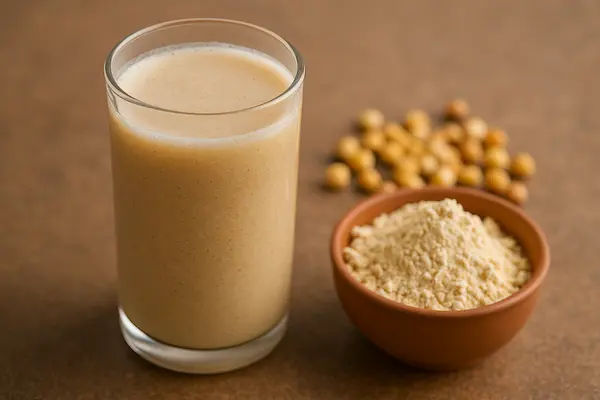Best Foods for Heart Health
Know about the best foods for heart health, why it is important, and foods to avoid for a good heart and tips for a healthy heart.

Written by Dr. J T Hema Pratima
Reviewed by Dr. Mohammed Kamran MBBS, FIDM
Last updated on 13th Jan, 2026

Introduction
Your heart works tirelessly every day to keep you alive and healthy. Taking care of it with the right foods is one of the best ways to ensure it stays strong and functions well. A heart-healthy diet can help lower cholesterol, reduce blood pressure, prevent inflammation, and decrease the risk of heart disease.
In this article, we’ll explore the best foods for heart health, why they’re beneficial, and how you can easily include them in your daily meals.
Why Heart-Healthy Foods Matter
Heart disease is one of the leading causes of health problems worldwide. Poor diet, lack of exercise, stress, and unhealthy habits contribute to heart issues. The good news? Small changes in your diet can make a big difference. Eating nutrient-rich foods helps:
Lower bad cholesterol (LDL)
Reduce high blood pressure
Prevent artery blockage
Improve blood circulation
Reduce inflammation
Now, let’s look at the best foods to keep your heart in top shape.
Top Heart-Healthy Foods
1. Fatty Fish (Salmon, Mackerel, Sardines)
Fatty fish are rich in omega-3 fatty acids, which help reduce inflammation, lower triglycerides, and prevent irregular heartbeats.
How to eat it:
Grill or bake salmon twice a week.
Add sardines to salads or whole-grain toast.
2. Leafy Green Vegetables (Spinach, Kale, Collard Greens)
Packed with vitamin K, nitrates, and antioxidants, leafy greens help lower blood pressure and improve artery function.
How to eat it:
Add spinach to smoothies.
Sauté kale with garlic and olive oil.
3. Whole Grains (Oats, Quinoa, Brown Rice, Whole Wheat)
Whole grains contain fibre, which helps reduce bad cholesterol and keeps arteries clear.
How to eat it:
Start your day with oatmeal.
Replace white rice with brown rice or quinoa.
4. Berries (Blueberries, Strawberries, Raspberries)
Berries are loaded with antioxidants that protect the heart by reducing oxidative stress and inflammation.
How to eat it:
Add berries to yoghurt or cereal.
Snack on fresh berries instead of sweets.
5. Nuts and Seeds (Almonds, Walnuts, Chia Seeds, Flaxseeds)
These are great sources of healthy fats, fibre, and plant-based omega-3s, which improve heart health.
How to eat it:
Sprinkle chia or flaxseeds on smoothies.
Have a handful of almonds as a snack.
6. Avocados
Avocados are rich in monounsaturated fats, which help lower bad cholesterol and raise good cholesterol (HDL).
How to eat it:
Spread avocado on whole-grain toast.
Add slices to salads or sandwiches.
7. Beans and Lentils
High in fibre, protein, and potassium, beans help regulate blood pressure and cholesterol.
How to eat it:
Add lentils to soups or stews.
Use chickpeas in salads or hummus.
8. Dark Chocolate (70% Cocoa or Higher)
Dark chocolate contains flavonoids, which improve blood flow and lower blood pressure.
How to eat it:
Enjoy a small piece (1-2 squares) as a treat.
9. Tomatoes
Tomatoes are rich in lycopene, a powerful antioxidant that supports heart health.
How to eat it:
Add fresh tomatoes to salads.
Cook them into sauces for extra lycopene absorption.
10. Green Tea
Green tea is packed with catechins, which help lower cholesterol and improve artery function.
How to drink it:
Replace sugary drinks with 1-2 cups of green tea daily.
Consult Top Nutritionists
Foods to Avoid for a Healthy Heart
While adding heart-friendly foods is important, reducing harmful foods is equally crucial. Limit or avoid:
Processed meats (sausages, bacon) – High in sodium and unhealthy fats.
Sugary drinks & sweets – Increase inflammation and weight gain.
Fried foods – Contain trans fats that clog arteries.
Excess salt raises blood pressure.
Refined carbs (white bread, pastries) – Spike blood sugar and cholesterol.
Simple Tips for a Heart-Healthy Diet
1. Cook at home – Control ingredients and avoid unhealthy additives.
2. Use healthy oils – Opt for olive oil instead of butter or margarine.
3. Eat more fibre – Whole grains, fruits, and vegetables keep your heart strong.
4. Stay hydrated – Drink plenty of water to support circulation.
5. Limit alcohol – Excessive drinking harms the heart.
When to See a Doctor
If you experience:
Chest pain
Shortness of breath
Irregular heartbeat
Severe fatigue
It’s important to consult a doctor. Regular heart check-ups can help detect issues early.
Final Thoughts
A heart-healthy diet doesn’t have to be complicated. By including nutrient-rich foods like fatty fish, leafy greens, nuts, and whole grains, you can protect your heart naturally. Small, consistent changes in your eating habits can lead to a stronger, healthier heart for years to come.
Consult Top Nutritionists
Consult Top Specialists for Personalised Tips

Mr Aritra Khan
Dietician
16 Years • PG Diploma in Clinical Nutrition,Doctorate in Public Health & Community Nutrition, Post Doctorate Fellowship in Functional Medicine & Critical Care Nutrition
Kolkata
Samaritan Clinic, Kolkata
(250+ Patients)
Dr Sumanth R
General Physician
2 Years • MBBS
Bengaluru
PRESTIGE SHANTHINIKETAN - SOCIETY CLINIC, Bengaluru
Dt. Ila Sharma
Clinical Nutritionist
18 Years • Master in food & Nutrition
Gurugram
VIPUL GREENS - SOCIETY CLINIC, Gurugram

Dr. Ramalinga Reddy
General Physician
5 Years • MBBS MD General medicine
Bengaluru
PRESTIGE SHANTHINIKETAN - SOCIETY CLINIC, Bengaluru
Mrs Sneha P V
Nutritionist
10 Years • Master of science in Food and Nutrition
Bengaluru
Apollo Clinic, Sarjapur Road, Bengaluru
Consult Top Nutritionists

Mr Aritra Khan
Dietician
16 Years • PG Diploma in Clinical Nutrition,Doctorate in Public Health & Community Nutrition, Post Doctorate Fellowship in Functional Medicine & Critical Care Nutrition
Kolkata
Samaritan Clinic, Kolkata
(250+ Patients)
Dr Sumanth R
General Physician
2 Years • MBBS
Bengaluru
PRESTIGE SHANTHINIKETAN - SOCIETY CLINIC, Bengaluru
Dt. Ila Sharma
Clinical Nutritionist
18 Years • Master in food & Nutrition
Gurugram
VIPUL GREENS - SOCIETY CLINIC, Gurugram

Dr. Ramalinga Reddy
General Physician
5 Years • MBBS MD General medicine
Bengaluru
PRESTIGE SHANTHINIKETAN - SOCIETY CLINIC, Bengaluru
Mrs Sneha P V
Nutritionist
10 Years • Master of science in Food and Nutrition
Bengaluru
Apollo Clinic, Sarjapur Road, Bengaluru




